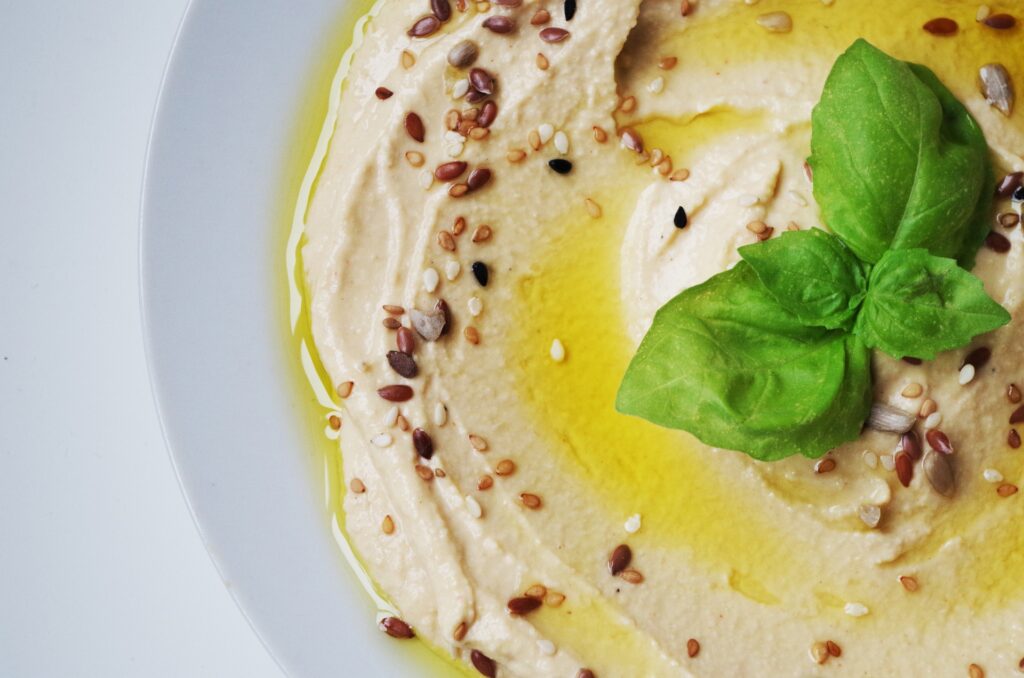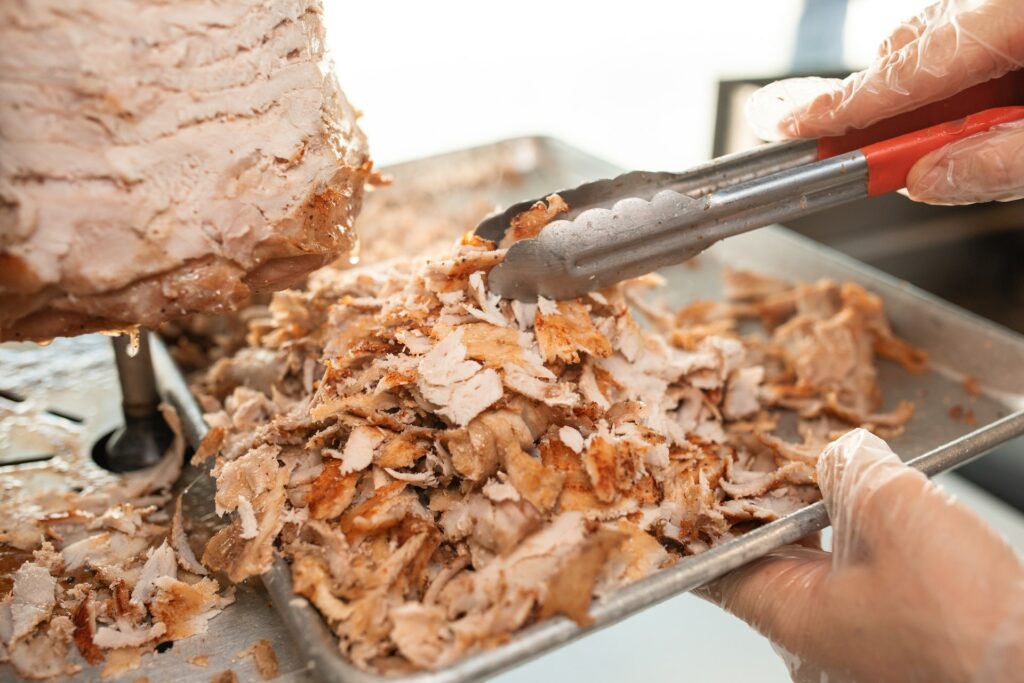Welcome to the ultimate culinary journey that will take you on a flavorful exploration of Israeli cuisine! As a Jewish immigrant, moving to a new country can be an overwhelming experience, but fear not, as we’ve got you covered when it comes to discovering the vibrant and diverse Israeli food scene. From street food staples to traditional family dishes, Israeli cuisine reflects the country’s rich history and cultural influences, making it a must-try for anyone seeking to fully immerse themselves in the Israeli way of life.
Whether you’re a fan of savory or sweet, meat or dairy, there is something for everyone in Israeli cuisine.
But that’s just the tip of the iceberg!
Israeli cuisine offers a vast array of delicious dishes, and we’ll show you how to navigate the culinary landscape like a pro, from the mouthwatering shakshuka to the delightful burekas.
So buckle up and get ready to taste your way through Israel!
1. Hummus: A Culinary Ambassador of Israel
Hummus is a Middle Eastern dip made from chickpeas, tahini, olive oil, lemon juice, and garlic. Although it’s enjoyed throughout the Middle East, hummus has become synonymous with Israeli cuisine, and for a good reason! In Israel, hummus is more than just a food; it’s a cultural icon that brings people together from all walks of life. Whether you’re a Jew or an Arab, a vegan or a meat-lover, everyone can enjoy a plate of hummus.
In Israel, you can find hummus everywhere, from fancy restaurants to street vendors. Some of the best hummus places in Israel include Abu Hassan in Jaffa, Ali Karavan in Akko, and Hummus Ashkara in Haifa. Each of these places has its unique spin on the dish, with variations in texture, flavor, and toppings. For example, some places serve hummus with chickpeas and pine nuts, while others top it with roasted eggplant or spicy sauce.

2. Falafel: A Staple of Israeli Street Food
Falafel is another popular Middle Eastern food that has become a staple of Israeli cuisine. Falafel is made from ground chickpeas, herbs, and spices, formed into balls or patties and deep-fried. It’s typically served in a pita bread, along with hummus, tahini, and various vegetables.

In Israel, falafel is ubiquitous, and you can find it on almost every street corner. Each falafel stand has its unique way of preparing the dish, with variations in size, texture, and flavor. Some falafel stands use a mix of chickpeas and fava beans, while others add fresh parsley or cilantro to the mix.
3. Shabbat Dinner: A Feast for the Senses
We believe Shabbat dinner deserves a category of its own. Sure, it’s present in Jewish homes worldwide, but Shabbat food in Israel is something else entirely.
In case you need a refresher, Shabbat dinner is a weekly tradition in Jewish households worldwide, and in Israel, it’s a time to come together with family and friends to celebrate the end of the week. Shabbat is a feast for the senses, with a variety of dishes that vary from family to family. Some traditional Shabbat dishes include challah, chicken soup with matzo balls, roast chicken, and kugel.
In Israel, Shabbat dinner is a chance to celebrate the country’s diverse cultural influences, with dishes from Jewish communities worldwide. For example, Iraqi Jews might serve sabich, a sandwich made with fried eggplant, hummus, and hard-boiled eggs, while Moroccan Jews might serve fish tagine, a flavorful stew made with fish, vegetables, and spices.
All of these you can find in Israel.
4. Israeli Wine: A Growing Industry
Israel might not be the first country that comes to mind when you think of wine, but the Israeli wine industry has been growing in recent years, with over 300 wineries throughout the country. Israeli wines are known for their unique flavor profiles, with grape varietals that thrive in the hot Mediterranean climate.
Some of the most famous Israeli wineries include Carmel Winery, Golan Heights Winery, and Tishbi Winery. Israeli wines range from reds, such as cabernet sauvignon and merlot, to whites, such as chardonnay and sauvignon blanc. Wine-tasting tours are a popular activity in Israel, and you can sample wines from various regions throughout the country, each with its unique terroir and style.
5. Shakshuka: A Breakfast Staple
Shakshuka is a classic Israeli breakfast dish made with eggs cooked in a tomato-based sauce, seasoned with spices such as cumin, paprika, and chili. It’s a hearty and flavorful dish that’s perfect for any time of day. Shakshuka can be served with bread or pita on the side, perfect for dipping and sopping up the sauce.

Shakshuka has its roots in North African and Middle Eastern cuisine but has become a staple of Israeli cuisine when it was brought by African immigrants. There are many variations of Shakshuka, with some adding cheese or greens, while others use a spicier sauce. Some popular places to try Shakshuka in Israel include Dr. Shakshuka in Jaffa and Shila in Tel Aviv.
6. Shawarma: A Street Food Classic
Shawarma is a Middle Eastern sandwich made with thinly sliced meat, typically lamb, chicken, or beef, cooked on a rotating spit and served in a loaf of pita bread with vegetables and various sauces. It’s a popular street food in Israel, and you can find Shawarma stands on almost every corner.
Shawarma has its roots in Arabic cuisine but has become a staple of Israeli cuisine. Each Shawarma stand has its unique way of preparing the dish, with variations in seasoning, meat, and sauces. Some popular Shawarma places in Israel include Abu Michel in Haifa and HaKosem in Tel Aviv.

7. Burekas: A Comfort Food Favorite
Burekas is a pastry made of dough filled with various savory fillings such as cheese, potato, or spinach. It’s a popular comfort food in Israel, perfect for a quick breakfast or snack. Burekas has its roots in Turkish and Sephardic Jewish cuisine but has become a staple of Israeli cuisine.
In Israel, you can find Burekas stands all over the country, each with its unique twist on the dish. Some popular places to try Burekas in Israel include Burekas HaTikva in Tel Aviv and Burekas 9 in Jerusalem. Burekas is often served with a side of Israeli salad, a refreshing mix of chopped tomatoes, cucumbers, and onions.
8. Sabich: A Delicious Vegetarian Option
Sabich is a popular Israeli sandwich made with pita bread, stuffed with fried eggplant, hard-boiled eggs, hummus, tahini sauce, and a variety of vegetables such as cucumber, tomato, and onion. It’s a delicious vegetarian option that’s perfect for lunch or a quick snack.
Sabich has its roots in Iraqi Jewish cuisine but has become a staple of Israeli street food. Each Sabich stand has its unique way of preparing the dish, with variations in the type of bread, seasoning, and sauces. Some popular Sabich places in Israel include Sabich Frishman in Tel Aviv and Sabich Tchernichovsky in Haifa. Sabich is a flavorful and filling dish that’s perfect for any vegetarian looking to explore Israeli cuisine.
Concluding remarks
In conclusion, Israeli cuisine is a melting pot of diverse cultures and traditions, with influences from Jewish, Arabic, Mediterranean, and North African cuisines. From hummus to shakshuka, falafel to burekas, and sabich to shawarma, Israeli cuisine offers a wide variety of flavorful dishes that are sure to satisfy any palate. Whether you’re a Jewish immigrant looking to reconnect with your roots or a foodie seeking new culinary experiences, Israeli cuisine is a must-try.
Israel’s diverse and flavorful cuisine is a testament to the country’s rich history and cultural heritage. With so many unique and delicious dishes to try, there’s never been a better time to explore Israeli cuisine.
So, whether you’re in Israel or exploring Israeli cuisine from afar, don’t hesitate to indulge in the many flavors and traditions that this country has to offer.




